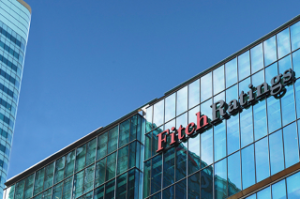Quote Of The Week
“There’s a lot of factors that support growing demand for apartments. But at the same time, our development pipeline is starting to slow particularly for apartments – so you know that would imply we’re going to see that gap start to close over the coming year or so.”
Anne Flaherty, PropTrack Economist
Auction Market Continues To Fire
 The auction market is continuing to fire, chalking up an eighth consecutive week of national clearance rates above 70%.
The auction market is continuing to fire, chalking up an eighth consecutive week of national clearance rates above 70%.
According to CoreLogic results, 73.8% of homes taken to auction last week sold with Adelaide once again achieving the highest clearance rate (79.7%).
Sydney was next with a clearance rate of 78.7%, Canberra, 72%, Melbourne, 70.1%,3 and Brisbane, 67.5%.
Auction activity across the smaller capital cities remains steady, with an increase in the number of properties offered for auction in the past week.
While Adelaide may continue to achieve the highest clearance rates, Brisbane continues to have the highest number of properties offered for auction among the smaller capitals.
The strong sales results keep coming despite the RBA continuing to increase interest rates to ease inflation.
A lack of listings and increase in demand throughout the market has resulted in further price growth with the combined capital cities achieving median price growth of 3.4% in the past quarter.
House And Unit Gap Closing
 The price gap between houses and units is tipped to close further as lack of stock drives up prices.
The price gap between houses and units is tipped to close further as lack of stock drives up prices.
Before the pandemic, the Australian median house price was 11.5% higher than the median unit price.
During the pandemic, the rush of buyers to larger lifestyle properties pushed that gap even further apart to 29.5%.
Now with shortages in both houses and units, PropTrack economist Anne Flaherty tips the gap will close substantially in the coming years and has already started in some markets.
“There’s a lot of factors that support growing demand for apartments. But at the same time, our development pipeline is starting to slow particularly for apartments – so you know that would imply we’re going to see that gap start to close over the coming year or so,” she says.
“So, what we’re going to see is those apartment prices which didn’t show that much movement in a lot of markets for quite a long time, are going to start to increase.”
Aussies Want To Buy Property
 The dream of owning a standalone home has started to wane in Australia, but property ownership is still on the cards.
The dream of owning a standalone home has started to wane in Australia, but property ownership is still on the cards.
Many Australians have already adjusted their expectations and instead bought a unit, according to real estate expert John McGrath.
And he says they aren’t necessarily living in them, with many choosing to become “rentvestors” as a way to get their foot on the ladder.
McGrath says Australian Bureau of Statistics research shows lifestyle factors are at play.
It says the age of first ownership is rising, with more people going to university after school delaying the time when they start earning a full-time income, getting married and having children.
“Inevitably, studying delays income production, which delays home ownership. These days, many young people remain in the family home with their parents while studying,” McGrath says.
Affordability also remains a major issue and that’s why many are opting to buy apartments now instead of houses, according to McGrath.
5% House Price Growth Tipped
 Global ratings agency Fitch is tipping 5% house price growth in Australia this year.
Global ratings agency Fitch is tipping 5% house price growth in Australia this year.
The growth is a revised prediction from its previous forecast of a drop in prices of up to 10%.
It also lowered its expectation of the level of mortgage arrears this year, after taking into account the “resilience” of homeowners because of pandemic accumulated savings buffers.
The Commonwealth Bank is also expecting growth – up to 3% this year and 5% next year.
It says Perth will be a standout market in 2024 with property values forecast to rise by up to 6%.
Despite rate rises, the majority of buyers are still choosing variable-rate loans according to the ABS.
In April, 94.9% of new and refinanced loans were variable. At the height of the pandemic variable loans dropped to 54% of the market.
Shore Financial, senior credit adviser, Christian Stevens, says borrowers are taking a punt on interest rates dropping next year and don’t want to be locked in.
Prices Won’t Crash With Economy
 Owners and investors need not fear their properties will lose value if the Australian economy tips into recession.
Owners and investors need not fear their properties will lose value if the Australian economy tips into recession.
History shows even a recession won’t result in massive drops in value.
At the peak of the 1993 Recession and the 2007-2009 Global Financial Crisis, property prices only dropped by 10%.
Consecutive interest rate rises have done nothing to dampen enthusiasm from buyers, with many actively looking for homes, with a lack of supply driving up prices.
AMP Capital chief economist Shane Oliver says there is little evidence to suggest a property price crash is looming if there is an economic downturn in Australia.
“It is quite normal to see prices come down,“ he says.
“(But) There’s not much evidence of a crash unless you go back to the 1930s. That was, I guess, an extraordinary downturn and combination of events. But in the post-war period, there’s no evidence of a crash in property prices just because you have an economic downturn or recession.”




